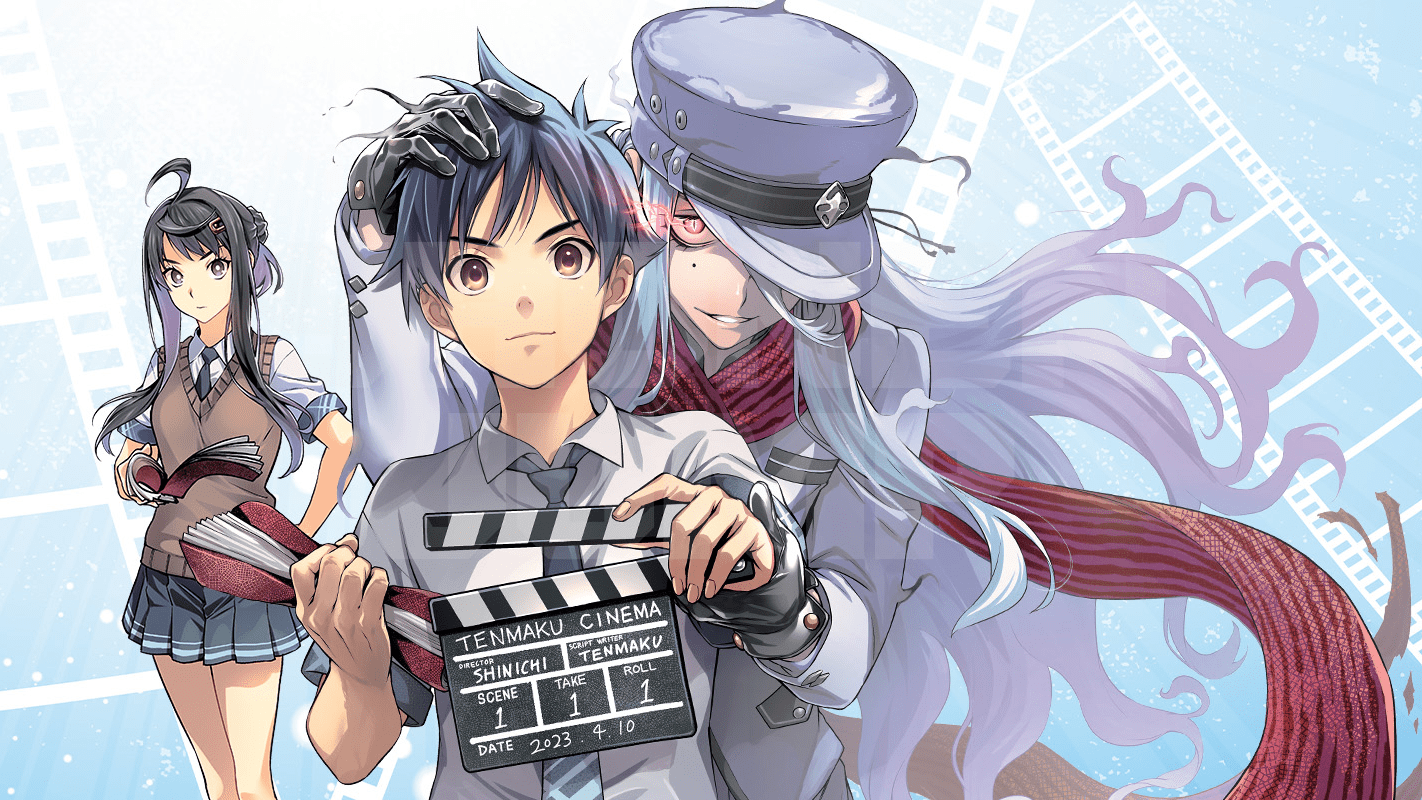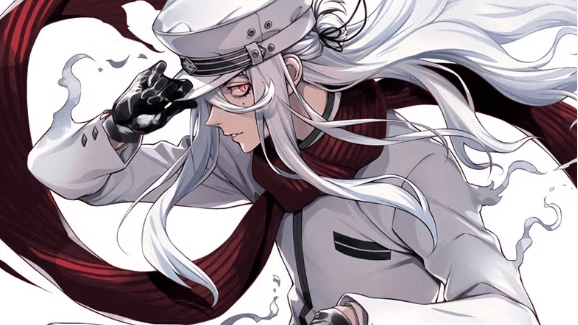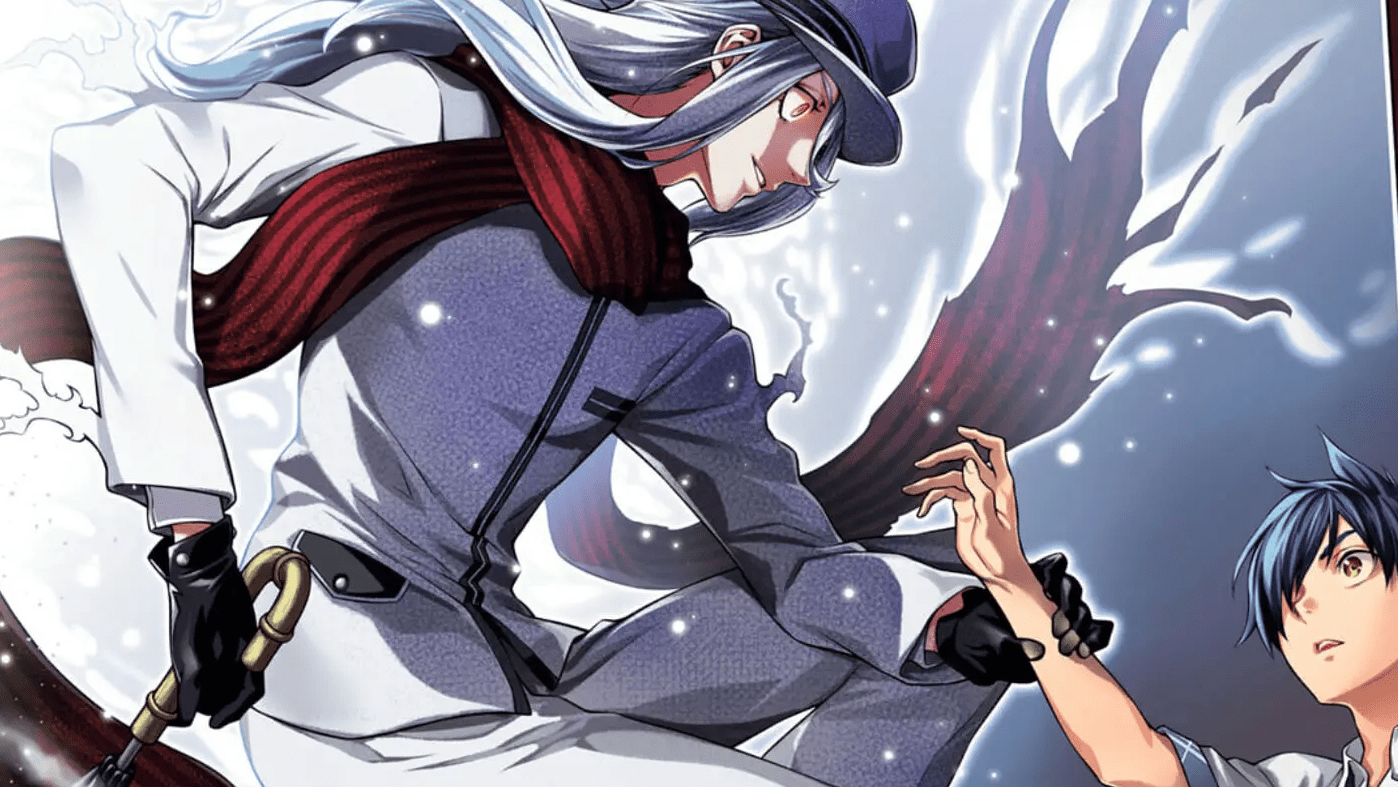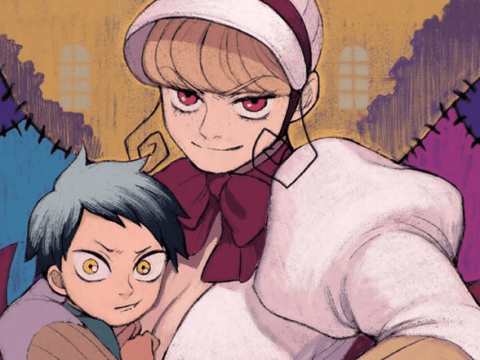
Being able to read Shonen Jump titles as they come out, thanks to the SJ app, means a lot more than just getting the freshest, most popular manga straight from Japan. (Although that is absolutely our main reason for subscribing.) A side effect of this instant access is an awareness of just how quickly a manga can disappear from your life. Sudden manga cancellations aren’t all that uncommon, of course. But for a readership that largely accesses manga by the volume, it can be a strange revelation. Tenmaku Cinema is one of the latest to be cut short.
While it at least had a chance to close out an arc, it’s obvious there was plenty more room for it to grow. And while we’re happy for a chance to discover new titles like MamaYuyu, we’ll miss this series for a lot of reasons.
The Art

Tenmaku Cinema is all about film, so of course the manga art needs to measure up. Shun Saeki, who also collaborated with the manga’s writer Yuto Tsukuda on Food Wars!, is in fine form here. While the majority of the series is very down-to-earth, its title character is a literal ghost. And he’s a beautiful one, too. His design is one of the most stunning things about the manga.
But the whole thing is eye candy, even in simple everyday shots. Saeki also takes a lot of time to bring out the beauty of The Shore, the indie short film of the manga. It’s stunning stuff—but even the prettiest manga needs a strong story to hold it together.
Compelling Characters

Fortunately, Tenmaku Cinema has just that. On the surface, this is a series about getting a short film made. And there’s a ghost involved. But as the manga goes on, we go in a surprising direction: the trauma of The Shore‘s star actress, Himeki Kurakui (real name Hinaki Kurai). Her stunning star power has come at a price. And as teen director Shinichi zeroes in on The Shore‘s compelling final shot, it requires Kurai to dig deep and confront some personal fears.
We also get a taste of Tenmaku’s life before death: where he got his pen name and his writing expertise, for example. But it feels like there’s so much more to tell about him: his goals, his drive, and the true nature of his “unfinished business.”
Love of Film

Naturally, Tenmaku Cinema is a love letter to movies. From the writing to the production to the filming, everything is addressed. As the story unfolds, the reader learns tricks of the trade, as well as what makes their favorite film moments so compelling. A lot of love went into this story, making it engaging for everyone from casual viewers to astute film buffs.
You can still read all 21 chapters of the manga and catch up quickly on this short but sweet story. Sadly, it’s unlikely we’ll ever get to revisit Shinichi and Tenmaku’s cinematic world. But what we do have packs a lot of punch in a small space. We’ll miss it, and all the stories it never got to tell.




